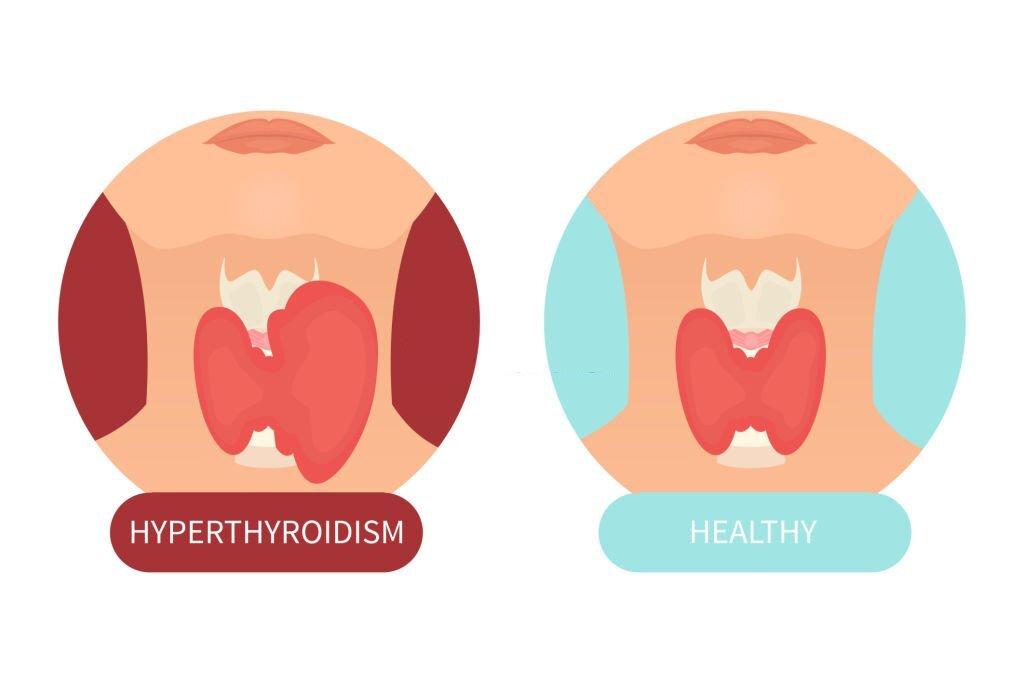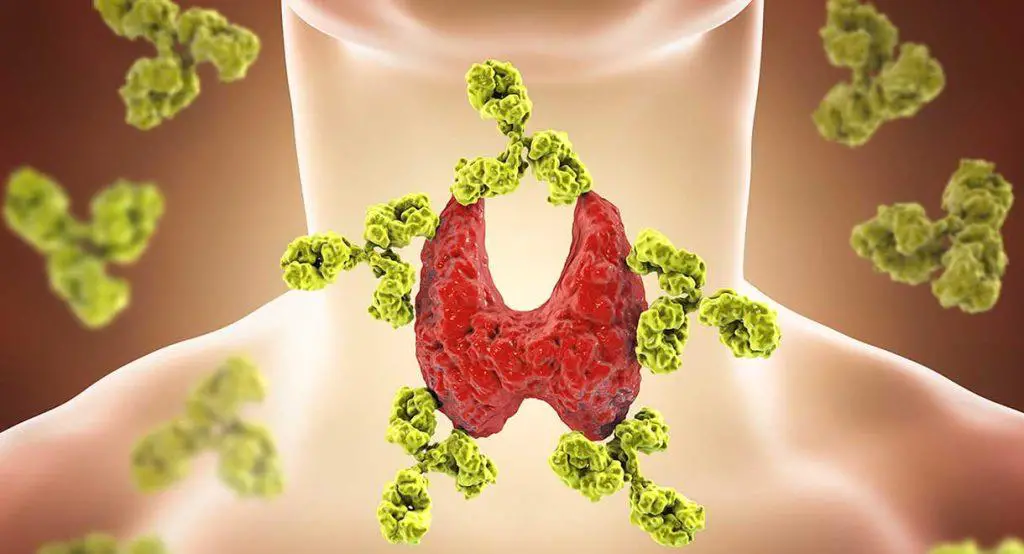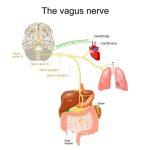The human body is a complex system, where various organs and glands work together to maintain overall health. Among these essential components, the thyroid and gallbladder play crucial roles in maintaining bodily functions. While they may seem unrelated, there is a connection between thyroid disorders and gallbladder health that is worth exploring. In this article, we will delve into the intricate relationship between these two aspects of our well-being and understand how they can influence each other.
Introduction
The thyroid gland is responsible for producing hormones that regulate metabolism, growth, and development. On the other hand, the gallbladder aids in digestion by storing bile, a substance that helps break down fats. Although they have distinct functions, recent studies have shown that imbalances in thyroid hormone levels can impact gallbladder health and vice versa.
The Thyroid Gland: Functions and Disorders
The Role of the Thyroid Gland
The thyroid gland, located in the neck, produces hormones known as thyroxine (T4) and triiodothyronine (T3). These hormones regulate metabolism, body temperature, heart rate, and the functioning of various organs. When the thyroid gland produces an excess or deficiency of these hormones, it can lead to thyroid disorders.
Common Thyroid Disorders
Thyroid disorders include conditions such as hypothyroidism (underactive thyroid), hyperthyroidism (overactive thyroid), and thyroid nodules. Hypothyroidism can slow down bodily functions, leading to weight gain, fatigue, and depression. Hyperthyroidism, on the other hand, speeds up bodily functions, causing weight loss, irritability, and anxiety. Thyroid nodules are abnormal growths in the thyroid gland and can be benign or cancerous.
The Gallbladder: Functions and Disorders
The Role of the Gallbladder
The gallbladder is a small organ located beneath the liver. Its primary function is to store bile, a digestive fluid produced by the liver. Bile helps break down fats and aids in the absorption of fat-soluble vitamins. When we consume a fatty meal, the gallbladder contracts and releases bile into the small intestine to facilitate digestion.
Common Gallbladder Disorders
Gallbladder disorders include gallstones, cholecystitis (inflammation of the gallbladder), and gallbladder polyps. Gallstones are hardened deposits that form in the gallbladder and can cause pain and obstruction. Cholecystitis occurs when the gallbladder becomes inflamed, usually due to gallstones. Gallbladder polyps are abnormal growths that develop on the gallbladder wall.
Thyroid hormone relaxes the spincter of Oddi which controls the dumping of bile into the small intestine. When the sphincter is tense due to lack of this thyroxine, less bile is allowed into the small intestine. Sphincter of Oddi dysfunction may also promote gallstone formation.
People with gallbladder dysfunction also tend to have other co-existing symptoms with the gut, be it constipation, diarrhea, leaky gut, food allergies, or parasites. Since 20% of the thyroid hormone, thyroxine or T4 is converted into its usable counterpart, T3 in the gut, you can see that getting our digestive disorders healed and the good gut flora flourishing is paramount to optimal thyroid function.
A thyroid that is not working properly can lead to:
The Link Between Thyroid Disorders and Gallbladder Health
Thyroid Hormones and Gallbladder Function
Thyroid hormones play a role in gallbladder function. Studies have shown that when thyroid hormone levels are low, gallbladder emptying and bile flow may be impaired. Conversely, when thyroid hormone levels are high, gallbladder contraction and bile secretion may increase.
Impact of Thyroid Disorders on Gallbladder Health
Thyroid disorders can influence gallbladder health in several ways. Hypothyroidism can lead to a decrease in gallbladder motility, increasing the risk of gallstone formation. Additionally, individuals with hypothyroidism may have higher cholesterol levels, which can contribute to the development of gallstones. On the other hand, hyperthyroidism can cause increased gallbladder motility, potentially leading to gallbladder inflammation or even gallbladder attacks.
Gallbladder Disorders and Thyroid Function
Gallbladder disorders can also affect thyroid function. Gallstones can obstruct the bile ducts, leading to a condition called cholestasis. Cholestasis can disrupt the enterohepatic circulation of thyroid hormones, potentially affecting their metabolism and availability in the body.

Hypothyroidism Symptoms
[su_list icon=”icon: star” icon_color=”#172a85″]
- Fatigue
- Dry skin and hair
- Hair thinning/hair loss
- Depression
- Morning headaches that get better throughout the day
- Foggy brain
- Loss of memory
- Hoarse voice
- Difficulty concentrating
- Intolerance to cold
- Low body temperature
- Poor circulation/numbness in hands and feet
- Muscle cramps with no exertion
- Weight gain and difficulty losing it
- Decreased appetite
- Constipation
- Gallbladder diseases such as gallstones
- Chronic digestive problems such as low stomach acid
[/su_list]
If you add some of the following symptoms to the above list, consider the autoimmune disease attacking the thyroid called Hashimoto’s Disease:
Symptoms of Hashimoto’s
[su_list icon=”icon: star” icon_color=”#172a85″]
- Heart palpations
- Increased pulse without exertion
- Anxiety, nervousness
- Insomnia
- Night sweats
- Weight loss and difficulty gaining weight
- Muscle and joint pain
[/su_list]
Then add some of the symptoms below as well since Hashimoto’s can have mixed symptoms of both either simultaneously or alternating. Note that you can have difficulty losing weight or difficulty gaining weight with Hashimoto’s.
Hashimoto’s disease, an autoimmune condition affecting the thyroid gland, can cause a range of symptoms in individuals with normal weight. If you experience symptoms of hypothyroidism, such as fatigue, weight gain, and hair loss, while having periods of hyperthyroid symptoms, it is likely that you have Hashimoto’s. This condition occurs when the immune system mistakenly identifies thyroid tissue cells as foreign and starts attacking and destroying them. In this article, we will explore Hashimoto’s disease in detail, including its discovery, causes, and management.
[su_box title=” ” box_color=”#ee6409″]
HASHIMOTO’S DISEASE
The Discovery of Hashimoto’s Disease
In 1912, a Japanese physician named Hakaru Hashimoto made a significant discovery. He identified a condition characterized by the immune system’s attack on thyroid tissue cells. This autoimmune disease, now known as Hashimoto’s disease, occurs when the immune system produces antibodies that target the thyroid gland. Once the immune system develops antibodies against a specific “invader,” these antibodies persist for life. Although thyroid tissue is not actually an invader, the immune system perceives it as such, leading to the destruction of healthy thyroid cells.
To gain a better understanding of why this immune response occurs, it is recommended to read Datis Kharrizian’s book “Why Do I Still Have Thyroid Symptoms When My Lab Tests Are Normal?” This insightful resource delves into the management of thyroid-related issues, including Hashimoto’s disease, and sheds light on the possible underlying causes of the condition.
[su_note note_color=”#f1d78f”]
Testing and Diagnosis
Determining whether you have Hashimoto’s disease can be challenging, as the symptoms can be similar to other thyroid disorders. If you experience a combination of symptoms associated with Hashimoto’s, it is advisable to assume that you have the condition and take proactive steps to manage it through dietary interventions. Seek the care of healthcare professionals who are knowledgeable in both medical and nutritional approaches to Hashimoto’s disease. Ideally, you may benefit from the expertise of both an M.D. and a natural practitioner who specialize in thyroid disorders.
Managing Thyroid Disorders and Promoting Gallbladder Health
Treatment Options for Thyroid Disorders
The treatment of thyroid disorders depends on the specific condition. Hypothyroidism is typically managed with thyroid hormone replacement therapy, where synthetic hormones are prescribed to normalize hormone levels. Hyperthyroidism may be treated with medications, radioactive iodine therapy, or surgery to remove part or all of the thyroid gland. Regular monitoring of thyroid hormone levels is crucial to ensure optimal management.
Lifestyle Changes for a Healthy Gallbladder
Maintaining a healthy gallbladder involves adopting certain lifestyle changes. These include maintaining a balanced diet rich in fiber, fruits, and vegetables while limiting the consumption of high-fat foods. Staying hydrated, engaging in regular physical activity, and avoiding excessive weight gain can also support gallbladder health.
Conclusion
In conclusion, there is a significant connection between thyroid disorders and gallbladder health. Imbalances in thyroid hormone levels can impact gallbladder function, and gallbladder disorders can influence thyroid function. Understanding this intricate relationship can aid in the diagnosis and management of both thyroid and gallbladder conditions. It is important to consult with healthcare professionals for proper evaluation and personalized treatment plans to address any concerns related to thyroid disorders and gallbladder health.
FAQs (Frequently Asked Questions)
Can hypothyroidism cause gallbladder problems?
Yes, hypothyroidism can potentially cause gallbladder problems. When thyroid hormone levels are low, it can lead to a decrease in gallbladder motility, increasing the risk of gallstone formation. Additionally, individuals with hypothyroidism may have higher cholesterol levels, which can contribute to the development of gallstones.
Is there a link between hyperthyroidism and gallbladder disease?
Yes, there is a link between hyperthyroidism and gallbladder disease. Hyperthyroidism, which is characterized by an overactive thyroid gland, can cause increased gallbladder motility. This increased contraction of the gallbladder can potentially lead to gallbladder inflammation or even gallbladder attacks.


